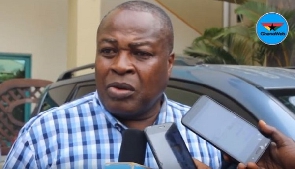Accra, Aug. 15, GNA - Deputy Minister of Finance, Professor George Gyan-Baffour said on Tuesday that the introduction of the VAT flat rate scheme to get operatives in the informal sector to register and pay tax would not come with prescriptions of any new laws on VAT. Rather, he said, the scheme was geared towards the simplification of the provisions in the VAT Act, 1998 (Act 546) and its subsidiary legislation aimed to optimize revenue collection at the informal retail level.
Prof. Gyan-Baffour was speaking at the opening of a two-day training workshop for the Management of the VAT Service on the features, benefits and mechanics of the flat rate scheme. The document to enforce the three per cent flat rate scheme, which is currently before the Revenue Agencies Board, requires the VAT Service to register businesses with yearly turnover of 200 million cedis to a maximum of 1.2 billion cedis when it becomes operational. But the Value Added Tax Service Senior Staff Association (VATSSSA) has called on the authorities to exercise caution to ensure that the experiment was not abused to devalue the key objectives for introducing VAT.
They called on the Ministry of Finance to limit the flat rate scheme to small-scale enterprises of limited turnover band so as not to discourage investments into other sectors, notably manufacturing. Professor Gyan-Baffour said the scheme, which was easy to operate, would lead to a reduction in the cost of compliance and ensure flexible record-keeping regime. Besides it would facilitate the compliance of small-scale enterprises.
Prof. Gyan-Baffour, however, warned that these intrinsic advantages of the scheme would be mere rhetoric unless tax returns and invoices were simplified in structure and language to make them comprehensible to the average taxpayer.
There is also the need to intensify education while notices and statements on the scheme must be in simple and plain terms that are understood by the taxpayer.
In addition, technical training sessions on the scheme should be organised for staff on sustained basis to equip them with skills and competences.
He, therefore, urged the Service not to compromise on the control mechanisms built into the scheme to make its implementation effective. Mr Anthony Ewereko Minlah, VAT Commissioner, said the scheme was part of interventions to widen the tax net and to collect more revenue for development.
He said the VAT Service was working hand-in-hand with the Ghana Union of Traders' Association for education purposes to ensure voluntary compliance with registration and collection of the tax. The Service is also embarking on various programmes to educate personnel to enhance skills for enforcement purposes. The VAT Service hopes to start the implementation of the scheme in October 2006. 15 Aug. 06
Click to view details



Business News of Tuesday, 15 August 2006
Source: GNA
















